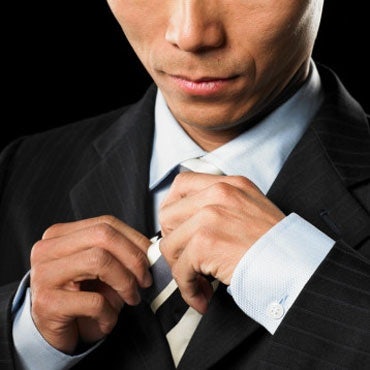Style Survives The Financial Crisis As Bespoke Thrives In China's Fashion Capitals#

Recent events such as China Fashion Week in Beijing have given China's burgeoning home-grown fashion industry a chance to be seen on the global stage. China's fashion industry, which for years was focused primarily on producing low-priced items for export, has begun to look inward, tapping in to the growing middle class and even luxury consumers. Though China's upper class will prefer to buy imported luxury brands for the near future, a growing interest in setting oneself apart through mixing and matching an eclectic array of designers -- both from at home and abroad -- among China's younger "me generation" of post-80s consumers means we can expect to see domestic brands flourishing in coming years.
Today, China Daily writes on the growth of bespoke luxury in China. As wealth has grown in major metropolitan centers, so too has the demand for tailors. As we've seen earlier this year, with large-scale bespoke brands like Trands attract global attention, tailoring and bespoke fashion -- formerly a specialty in pre-revolution Shanghai -- is roaring back to life in China:
People may have been forced to forego the more luxurious things in life during the global economic slowdown, but style is one thing that will never go out of fashion in China.
Business has continued to boom for bespoke tailors in Beijing. "I didn't feel the pinch during last year's economic turmoil," said Guo Pei, president of Rose Studio, one of the capital's first bespoke tailor shops based in Chaoyang district.
Guo said business increased by 30 percent year on year in 2008.
As the economy has developed swiftly, the nation's nouveau riche has acquired a taste for luxury goods. One of the results is the soaring popularity of haute couture fashion, which originated in France in the 19th century.
...
The popularity of bespoke tailoring in China is down to the general elevation in people's living standards, according to Yang Jian, secretary general for the organizing committee of China Fashion Week.
Before 1996, most had no concept of bespoke tailoring, Yang said. People went to tailors simply because they charged less than shops that sold ready-made clothes. But as people have grown less concerned with the fundamentals of food, shelter and simple clothing, they have begun to pursue luxury extras like exquisite garments, which has boosted the bespoke market.
"It took almost 10 years to develop the market," Yang said. "Beijing has gone from none to more than 200 bespoke tailor shops now. And it's still expanding swiftly."
According to fashion experts, there are two major differences between the Chinese and foreign haute couture markets. In Europe and the US, 95 percent of customers are female, while in China, male and female make an equal number of purchases. The reason is that Chinese men are generally richer and more powerful, and expensive clothes are a symbol of their social status.
The other difference is that, in developed countries, bespoke tailoring caters only to the super rich. In China, the market is gradually shifting from the super rich to average citizens with decent incomes.
A manager surnamed Fan at Queenree, a tailor shop in Chaoyang district, said that customers mainly fall into three categories: white collars, businesspeople and expats.
Office ladies whose annual income exceeds 200,000 yuan were one of the store's biggest clients, said Fan.
"Their jobs require them to frequently attend social events," he said. "And they believe specially-made gowns will show off their personality and charm at these events."